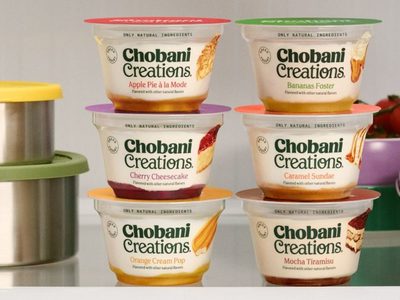
PURCHASE, N.Y. — Product launches helped PepsiCo, Inc. meet or exceed its financial targets in fiscal 2014. The company delivered organic revenue growth of 4% for the full year and 5% for the quarter, but market challenges and currency headwinds pressured profit.
For the year ended Dec. 27, 2014, net income attributable to PepsiCo was $6,513 million, equal to $4.27 per share on the common stock, down 3% from $6,740 million, or $4.32 per share, during the prior year. Net revenue for the year was flat at $66,683 million, which compared with $66,415 million during fiscal 2013.
“We’ve built a robust and sustainable innovation pipeline, perhaps the strongest in our history,” said Indra Nooyi, chairman and chief executive officer, during a Feb. 11 earnings call with financial analysts. “Over the past two years, innovation as a percentage of total net revenue has climbed by 150 basis points and now stands at 9%.”
To meet growing demand for nutritious products, PepsiCo launched Gatorade whey protein bars and a kale variety of Naked Juice beverages during the year.
“And as a testament to the durability of our innovations, a number of our recent product introductions, like Tostitos Cantina, Mountain Dew Kickstart and Pure Leaf, generated double-digit estimated annual retail sales growth in 2014 after achieving over $100 million in their launch year.”
Product development also has helped the challenged Quaker Foods North America segment maintain a foothold in the marketplace. The company gained value share for the year in the hot cereal, ready-to-eat cereal and snack bar categories, where the brand is launching items with added protein, reduced sugar and steel-cut oats.
PepsiCo’s social and digital marketing efforts also are making a splash. The annual Lay’s potato chip flavor submission contest generated more than 14 million submissions, and the company’s recent Doritos Super Bowl campaign received nearly 5,000 consumer-submitted videos.
“Programs like these drive phenomenal consumer engagement, are highly complementary to our broader marketing efforts and are extremely financially efficient,” Ms. Nooyi said. “Our investments are translating to tangible results with solid improvements in brand equity scores and market share performance in our priority markets for our global brands.”
Productivity is another priority for PepsiCo, which completed a three-year, $3 billion productivity program launched in 2012 and is entering the next phase of productivity with a new five-year, $5 billion program.
“And we have a robust pipeline of productivity products focused on increasing efficiency through automation, optimizing our global manufacturing footprint, advancing the competitiveness of our go-to-market models and utilizing shared services,” Ms. Nooyi said. “These programs collectively are geared to deliver our targeted savings of approximately $1 billion per year through 2019.”
The company said it was the largest contributor to U.S. retail sales growth among all food and beverage manufacturers in 2014.
“Based on I.R.I. data in all measured channels we contributed nearly $1 billion of retail sales growth, more than the combined sales growth of the next 27 largest manufacturers,” Ms. Nooyi said.
Operating profit for the PepsiCo Americas Beverages segment was $2,846 million in fiscal 2014, down 4% from $2,955 million for the year before. The segment had revenue of $21,154 million, which compared with $21,068 million for fiscal 2013.
“PepsiCo Americas Beverages had a terrific fourth quarter; 3% organic revenue growth translated to 11% core constant currency operating profit growth,” Ms. Nooyi said. “We have seen the business gain momentum behind the efforts we have been making in marketing, innovation and execution. And this has resulted in not only improved financial results, but to better marketplace performance too, especially in our largest market, the United States.”
Operating profit in the Frito-Lay North America segment was $4,054 million in fiscal 2014, up 5% from $3,877 million during fiscal 2013. The segment had revenue of $14,502 million, up 3% from $14,126 million.
“Frito-Lay North America delivered strong performance,” Ms. Nooyi said. “Frito delivered 3% organic revenue growth for the full year and 3.5% in the fourth quarter, and 6% core constant currency operating profit growth both for the quarter and the full year. Market share results have shown steady improvement and we gained savory snack value share in the fourth quarter.”
Operating profit for the Quaker Foods North America segment was $621 million, up 1% from $617 million during fiscal 2013. Revenue for the segment was $2,568 million, down 2% from $2,612 million.
Latin America Foods operating profit was $1,211 million in fiscal 2014, down 2.5% from $1,242 million in fiscal 2013. Net sales rose 1% to $8,442 million from $8,350 million.
Despite political volatility and currency headwinds in international markets, PepsiCo generated full-year gains in volume, organic revenue and core constant currency operating profit in Europe, and the company achieved volume and organic revenue gains in the Asia, Middle East and Africa region, Ms. Nooyi said.
“As an operating company we absolutely manage the things that are within our control, marketing, innovation, marketplace execution and productivity, and we expect to continue to perform well in these areas,” Ms. Nooyi said. “However, we expect to face continued headwinds related to macros, in particular, weak currencies in a number of our key markets and the impact of low oil prices in countries whose economies are highly dependent on energy.
“Obviously these are outside our control. But we adjust the businesses to weather through the challenges as best as we can by controlling costs, adjusting our raw material sourcing and executing balanced pricing actions.”


